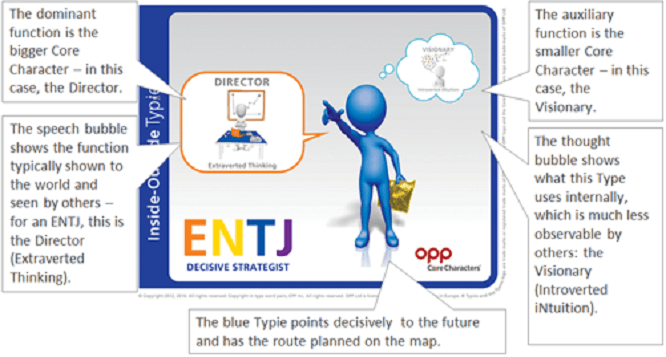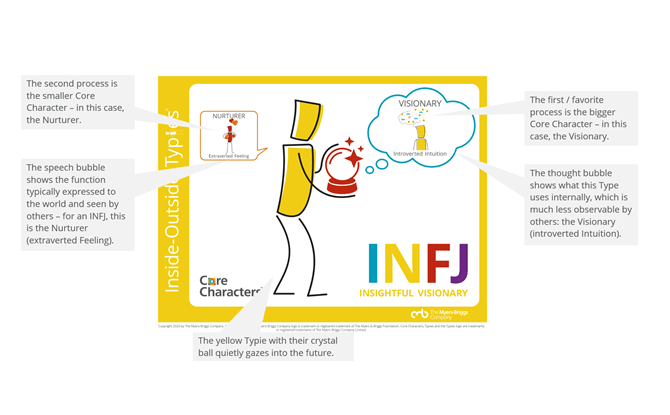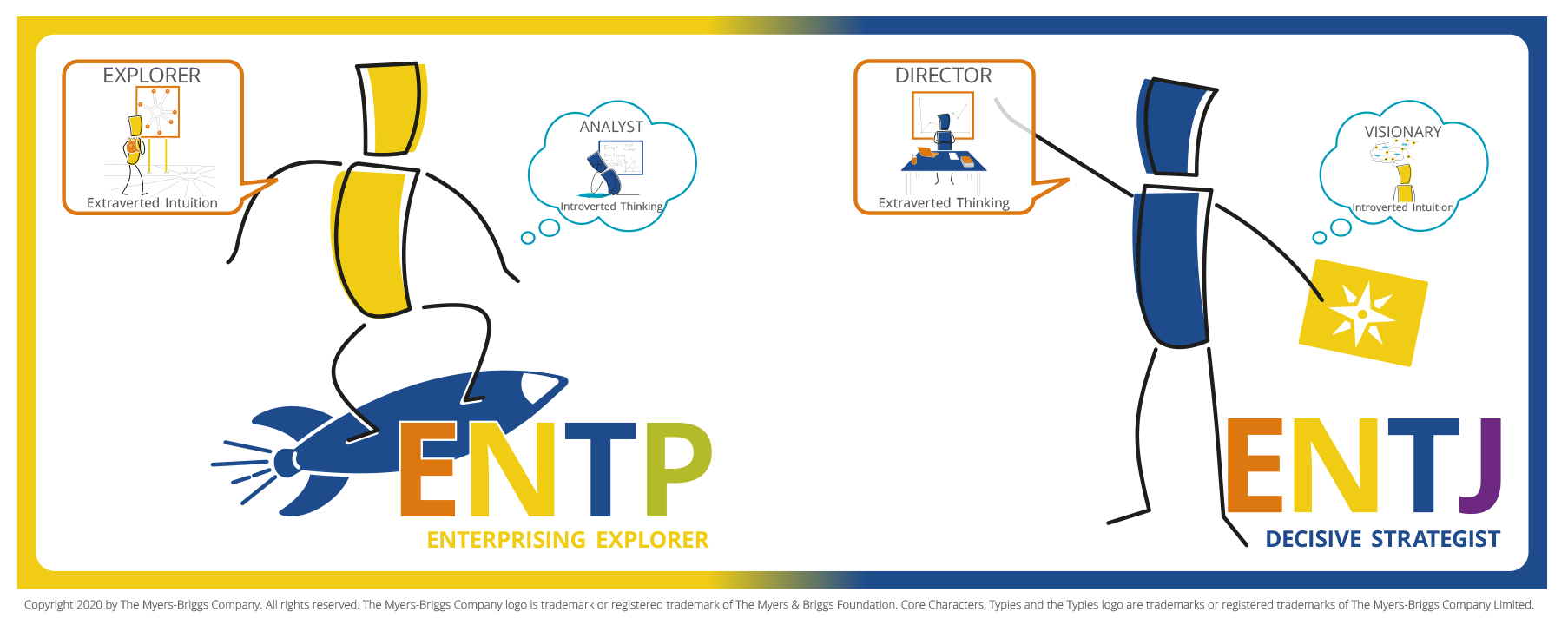Decoding communication issues between MBTI Types
Betsy Kendall, COO and Head of Professional Services, OPP
Inside-Outside Typies - a new way to explore Type dynamics by combining Typies and Core Characters
Last month I introduced our Core Characters. The characters illustrate the eight Type functions and they allow MBTI practitioners to leverage one of the most unique and powerful aspects of the MBTI® tool: the underlying theory of how the preferences interact dynamically with each other. In the blog I talked about using the Core Characters of Type (which supplement the Core Character cards) to enliven discussion about the dominant, the part of our personality that gets most attention and is the root of each Type’s intrinsic motivations.
We are always experimenting with ways to make it easier to talk about the MBTI tool, particularly Type dynamics, and now we have developed Inside-Outside Typies – exciting new imagery that you can access in PowerPoint format free from the Practitioner Resources section of the website (exclusive to MBTI practitioners signed in to an OPP account). These images combine the Core Characters™ with our existing Typies™ to provide a memorable way to show clients how their Type dynamics work in practice. OPP’s coaches who use the MBTI instrument to explore communication issues are finding these particularly powerful in opening up discussions with clients.
Inside-Outside Typies in action

Let's see how this works for someone with a preference for Introversion.

Inside-Outside Typies for self-awareness and working with others
For people who work with INFJs, for example, it is incredibly useful to understand that their core driver is not the desire for harmonious relationships but rather the need to use insight to connect ideas and develop an inner vision. Colleagues meet the INFJs, second (auxiliary) function, and so can erroneously think, “what you see is what you get”, and not understand the full potential and likely strengths of the INFJ.
We are finding that the Inside-Outside Typies are making it much easier for people to understand the impact they have on others, and to appreciate that others can’t see what is going on internally. Inside-Outside Typies also help Extraverts to see that to effectively use their introverted function, they probably need to create some time to reflect on their own.
Using Inside-Outside Typies with clients to decode communication issues
Our consultants who work with teams are finding that these new images allow team members to access greater depth of understanding about each other. We often ask pairs of team members to put their Inside-Outside Typies side-by-side to explore together how they communicate and work together, and how they can better leverage their combined Type resources. For instance, an ENTJ and an ENTP:

They have all but one letter in common so people new to the MBTI framework would be forgiven for thinking these two Types will be pretty similar and are surprised when they are not. Inside-Outside Typies make it clear just how different ENTP is from ENTJ, making the powerful insights of Type dynamics available without the need for the practitioner to get into theoretical explanations.
The ENTP deals with the outside world with their Explorer Core Character (Extraverted iNtuition). So when you communicate with an ENTP you will often hear them talking about how things could be different, generating new ideas, one idea will spark another, taking the discussion off at tangents. In contrast, when an ENTJ communicates you will often hear their logical decision-making and they will sound much more goal focused than divergent. ENTPs and ENTJs can talk at cross purposes: one wanting to stay in exploration mode, the other wanting to decide and move on. On top of that, when the ENTP is using Thinking it shows up as the Analyst. The Analyst is drawn to look at things as an interesting puzzle to be figured out quietly, taking whatever time is needed to find the right answer. This is very different from the ENTJ’s Director which comes across as deciding quickly, making a plan and moving everyone along. Using the Inside-Outside Typies it’s less surprising to see that despite sharing 3 out of 4 preferences, ENTPs and ENTJ can find it hard to get on and stay on the same page.
Further evolution of the Core Characters
To mark stress awareness month in April, we’re launching new resources, based on the Core Characters under both everyday and more extreme stress.